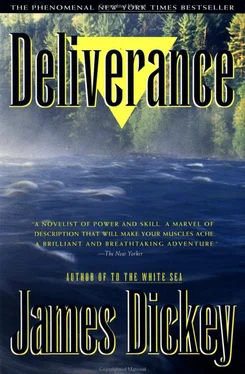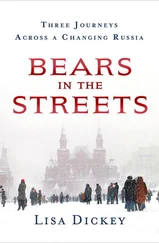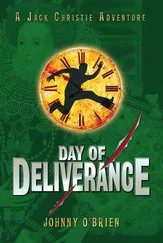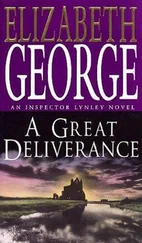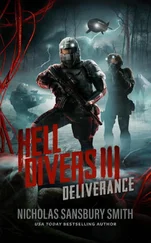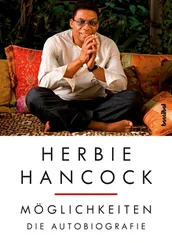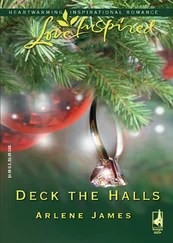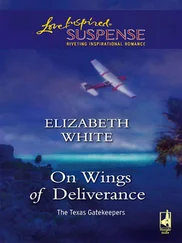“In what?”
“In these two canoes.”
“I wouldn’t want to try it,” he said, and straightened up. “If it rains, you’re liable to be in bad trouble. The water climbs them rock walls like a monkey.”
“What the hell,” Lewis said. “It’s not going to rain. Look up yonder.”
I looked up yonder. It was clear, hazy-hot blue with no clouds. It seemed all right, if it stayed that way.
“If it rains, we’ll just find us a place and hole up,” Lewis said. “I’ve done it before.”
“You’ll have a time holing up if you get down in that gorge.”
“We’ll make out.”
“All right,” the old man said. “You asked me. I told you.”
Drew and Bobby turned to go back to the Olds, and the Texaco man walked back alongside of Drew. I heard him ask, “Whose guitar is that-there yonder?” Then he was jumping like a dog on its hind legs back into the filling station. “Lonnie,” he hollered, “come on out here.”
He came back and behind him was an albino boy with pink eyes like a white rabbit’s; one of them stared off at a furious and complicated angle. That was the eye be looked at us with, with his face set in another direction. The sane, rational eye was fixed on something that wasn’t there, somewhere in the dust of the road.
“Git yer banjo,” the old man said, and then to Drew, “Come on, play us a little something.”
Drew grinned, rolled down the back window of the wagon, got out the big cracked Martin and put on his finger picks. He came back to the front of the Olds and hiked himself onto the bood with one leg up to hold the guitar. He tuned for a minute, and Lonnie came back holding up a five-string banjo with a capo made out of rags and rubber bands.
“Lonnie don’t know nothin but banjo-pickin’,” the old man said. “He ain’t never been to school; when he was little he used to sit out in the yard and beat on a lard can with a stick.”
“Whaere we going to play, Lonnie?” Drew asked, his glasses opaque with pleasure.
Lonnie stood holding the banjo, looking off from us now with both eyes, the eyes splitting apart and all of us in the blind spot.
“Anything,” the old man said. “Play anything.”
Drew started in on “Wildwood Flower,” picking it out at medium tempo and not putting in many runs. Lonnie dragged on the rubber bands and slipped the capo up. Drew started to come on with the volume; the Martin boomed out and over the dusty filling station. I had never beard him play so well, and I really began to listen deeply, moved as an unmusical person is moved when he sees that the music is meant. After a little while it sounded as though Drew were adding another kind of sound to every note he played, a higher, tinny echo of the melody, and then it broke in on me that this was the banjo, played so softly and rightly that it sounded like Drew’s own fingering. I could not see Drew’s face, but the back of his neck was sheer joy. He eased out of the melody and played rhythm, and Lonnie took it. He emphasized nothing, but through everything he played there was a lovely unimpeded flowing that seemed endless. His hands, full of long scratches, took time; the fingers moved only slightly, about like those of a good typist; the music was just there. Drew came back in the new key and they finished, riding together. For the last couple of minutes of the song, Drew slid down and went over and stood beside Lonnie. They put the instruments together and leaned close to each other in the pose you see vocal groups and phony folk singers take on TV programs, and something rare and unrepeatable took hold of the way I saw them, the demented country kid and the big-faced decent city man, the minor civic leader and hedge clipper. I was glad for Drew’s sake we had come. Just this incident would be plenty to satisfy him.
“Goddamn,” he said as they finished.
“Come on, Drew,” Lewis said. “Put that thing away. We got to get water under us.”
“I could play with this guy all day,” Drew said. “Can you wait just a minute? I’d like to got his name and address.”
He turned to Lonnie, then quickly to the old man; he was, I guess, afraid that Lonnie didn’t know his name and address. They walked together a few steps, almost out of the area of the filling station, and stood talking. Then Drew passed the Martin to the old man and took a pencil and his wallet out of his pocket and wrote carefully what the old man told him.
Once the man touched Drew’s shoulder. Drew came back, and the old man and Lonnie went inside.
“You know,” Drew said to all of us, “I’d like to come back up here, just to hear some more music. I thought all the real country pickers had long since gone to Nashville.”
“How about the river?” Lewis asked.
“He tells me you can’t get down to the river anywhere in town here. It’s too steep. But eight or ten miles north of here the land’s flat. We might be able to find us a road through the woods. There was a logging operation up there a few years back, and he thinks there are still some roads that go down to the river, or somewhere around it.”
“How about drivers?”
“He doesn’t have anybody here, but there are a couple of brothers who run a garage out the way we’re going to have to go, and they might be able to do it.”
We drove out of town. We were higher up than I thought. We went over a bridge, and through the whirling girders of the supports the river was flickering. It was green, peaceful, slow, and I thought, very narrow. It didn’t look deep or dangerous, just picturesque. It was hard to imagine that it flowed through woods anywhere, or that animals drank from it, or that it was going to be dammed up and become a lake.
North of town about half a mile we stopped. Lewis thought it would be a good idea for Drew and Bobby to buy supplies while Lewis and I made the deal about the cars. We could see the Griner Brothers’ Garage from where we were, and Lewis told Drew to meet us there in half an hour. We drove up to the garage and parked.
There was a frame house connected to the garage, and we went to it and knocked on the door. No one answered. A doghead came around a jamb inside. We could hear hammering from the galvanized tin garage, but when we went over there we saw that the front of it was locked with a big chain and padlock. We walked around to the back. Half of the double door was sagging open. We went in, Lewis first.
It was dark and iron-smelling, hot with the closed-in heat that brings the sweat out as though it had been waiting all over your body for the right signal. Anvils stood around or lay on their sides, and chains hung down, covered with coarse, deep grease. The air was full of hooks; there were sharp points everywhere—tools and nails and ripped-open rusty tin cans. Batteries stood on benches and on the floor, luminous and green, and through everything, out of the high roof, mostly, came this clanging hammering, meant to deafen and even blind. It was odd to be there, not yet seen, paining with the metal harshness in the half-PAJOKAda.A.
We went toward the hammering, which seemed to be done also on the outside of the shed, on the roof and tin sides and us at the same time, who got it all. We were close enough to the source of the sound to flinch each time it came, when it stopped. The air around our heads closed in. By this time we could see a few more things, though it was actually darker there than where the batteries and anvils were. The hub of what looked like a truck wheel was on a table, and a big figure was bending over it. We were still invisible. I was about to say something when the figure straightened and turned.
Not saying anything and holding one hand in the other, the man stepped forward between us and went toward the slant light that stood for the door. I instinctively let him go by, though for a second I thought I saw Lewis move toward his path, and my heart-blood jumped in place, not able to understand what was happening or about to happen. Lewis’ move toward blocking the man, if it was a move, appeared as instinctive on his part as my own move away, but I can’t to this day remember if it really happened; it might have been just a trick of perspective or darkness. We followed the man out.
Читать дальше
